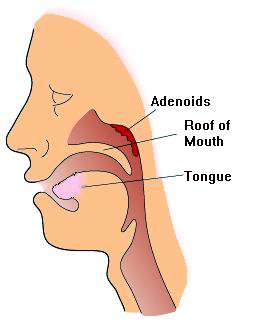
The adrenal glands are small, triangular organs located on top of each kidney. Despite their size, they have a profound impact on the body’s overall health and function by producing critical hormones such as cortisol, aldosterone, adrenaline, and noradrenaline. These hormones regulate essential processes including metabolism, blood pressure, immune response, stress adaptation, and electrolyte balance.
Adrenalectomy is the surgical removal of one or both adrenal glands. It is primarily performed to treat benign or malignant adrenal tumors, hormone-secreting tumors, or other adrenal pathologies that disrupt hormone balance or threaten organ function. Thanks to advances in minimally invasive surgical techniques, including laparoscopic and robotic-assisted approaches, adrenalectomy today offers patients a safer, less invasive option with quicker recovery times compared to traditional open surgery.
This comprehensive guide delves into the causes that lead to adrenalectomy, signs and symptoms indicating the need for surgery, diagnostic approaches, available treatment methods, prevention and postoperative management strategies, potential complications, and living with or after adrenalectomy.
Common Indications for Adrenalectomy
-
Adrenal Adenomas:
These benign tumors may secrete hormones like cortisol or aldosterone, causing Cushing’s syndrome or Conn’s syndrome. -
Pheochromocytoma:
A rare but potentially life-threatening tumor that produces excessive catecholamines (adrenaline and noradrenaline), causing severe hypertension and cardiovascular risks. -
Adrenocortical Carcinoma:
A malignant tumor requiring surgical removal for potential cure. -
Congenital Adrenal Hyperplasia:
A genetic disorder leading to adrenal gland enlargement and hormone overproduction. -
Metastases to the Adrenal Gland:
Secondary tumors from cancers such as lung, breast, or kidney may invade the adrenal glands. -
Adrenal Cysts or Hemorrhage:
Large cysts or bleeding within the gland causing pain or functional impairment.
Risk Factors for Adrenal Disease
-
Family history of endocrine tumors or syndromes such as Multiple Endocrine Neoplasia (MEN) type 2.
-
Genetic mutations (e.g., RET proto-oncogene mutations in MEN2).
-
Long-term exposure to corticosteroids or other hormone therapy.
-
Chronic hypertension and endocrine disorders.
-
Environmental or occupational exposure to carcinogens.
Symptoms vary depending on the type of adrenal pathology and whether the tumor secretes hormones.
Hormone-Secreting Tumors
-
Cushing’s Syndrome (excess cortisol):
Weight gain, moon face, purple skin striae, hypertension, muscle weakness, diabetes, osteoporosis. -
Conn’s Syndrome (aldosterone excess):
Hypertension, muscle cramps, fatigue, headaches, hypokalemia (low potassium). -
Pheochromocytoma (catecholamine excess):
Episodic hypertension, palpitations, sweating, headache, anxiety attacks.
Non-Functional Tumors or Mass Effect
-
Flank or abdominal pain due to tumor size or pressure on adjacent organs.
-
Incidental discovery of adrenal masses on imaging for unrelated reasons (incidentalomas).
General Signs
-
Persistent or resistant hypertension.
-
Electrolyte imbalances.
-
Symptoms of adrenal insufficiency if adrenal function compromised.
Hormonal Evaluation
-
Serum cortisol, ACTH, aldosterone, renin activity, catecholamines, and metanephrines.
-
Dexamethasone suppression test for cortisol excess.
-
Plasma and urine catecholamines for pheochromocytoma.
Imaging
-
CT Scan:
Provides detailed anatomical information, tumor size, characteristics (benign vs malignant features). -
MRI:
Superior for soft tissue contrast and vascular assessment. -
Nuclear Medicine Scans:
MIBG or PET scans for pheochromocytoma and metastatic disease detection.
Additional Tests
-
Genetic testing for hereditary syndromes.
-
Biopsy generally avoided due to risk of tumor spread.
Preoperative Management
-
Control of blood pressure and heart rate (especially in pheochromocytoma) using alpha and beta blockers.
-
Correction of electrolyte imbalances.
-
Patient education and optimization of comorbidities.
Surgical Techniques
-
Laparoscopic Adrenalectomy:
Gold standard for benign tumors and select malignancies; reduced morbidity and quicker recovery. -
Robotic-Assisted Surgery:
Enhanced dexterity and visualization for complex cases. -
Open Adrenalectomy:
Reserved for large, invasive, or malignant tumors requiring wide exposure.
Intraoperative Considerations
-
Careful dissection to avoid injury to adjacent organs and vessels.
-
Minimizing blood loss.
-
Specimen retrieval intact to prevent tumor seeding.
Postoperative Care
-
Monitoring vital signs and electrolyte balance.
-
Assessing for adrenal insufficiency; glucocorticoid replacement therapy as needed.
-
Pain management and mobilization.
-
Gradual reintroduction of diet and activity.
Long-Term Management
-
Lifelong endocrinology follow-up if bilateral adrenalectomy performed.
-
Monitoring for hormone deficiencies.
-
Regular imaging surveillance for malignant cases.
-
Lifestyle counseling including diet, exercise, and stress management.
Early Complications
-
Bleeding and hematoma formation.
-
Infection and wound complications.
-
Injury to adjacent organs (kidney, spleen, pancreas).
-
Thromboembolic events.
-
Adrenal crisis if steroid replacement inadequate.
Late Complications
-
Chronic adrenal insufficiency requiring lifelong steroid replacement.
-
Hypertension persistence or recurrence.
-
Tumor recurrence or metastasis.
-
Psychological effects related to hormonal changes.
Recovery
-
Hospital stay typically 2–5 days for laparoscopic surgery.
-
Return to normal activities in 2–4 weeks, depending on surgery type.
Hormonal Monitoring
-
Essential to detect and treat adrenal insufficiency early.
-
Patient education on stress dosing and recognizing adrenal crisis symptoms.
Quality of Life
-
Most patients experience significant symptom relief.
-
Supportive care, including psychological counseling, may be beneficial.
1. What is adrenalectomy?
Adrenalectomy is a surgical procedure to remove one or both adrenal glands, which are located above the kidneys and produce important hormones.
2. Why is adrenalectomy performed?
It is performed to treat adrenal gland tumors, hormone-producing tumors, adrenal cancer, or conditions like Cushing’s syndrome and pheochromocytoma.
3. What types of adrenalectomy are there?
The two main types are laparoscopic adrenalectomy (minimally invasive) and open adrenalectomy (traditional surgery with a larger incision).
4. How do surgeons decide between laparoscopic and open adrenalectomy?
The choice depends on the size and type of the tumor, the patient’s overall health, and surgeon expertise.
5. What are the risks of adrenalectomy?
Risks include bleeding, infection, injury to surrounding organs, hormonal imbalances, and blood pressure fluctuations.
6. How do I prepare for adrenalectomy surgery?
Preparation includes preoperative evaluations, imaging studies, lab tests, and sometimes medication to stabilize hormone levels.
7. What is the recovery time after adrenalectomy?
Recovery varies; laparoscopic patients often resume normal activities in 2 weeks, while open surgery recovery may take 4-6 weeks.
8. Will I need hormone replacement therapy after adrenalectomy?
If both adrenal glands are removed, lifelong hormone replacement is necessary. If one gland remains, it usually compensates.
9. How is pain managed post-surgery?
Pain is controlled with prescribed medications, and discomfort usually decreases within days to weeks.
10. Is adrenalectomy covered by insurance?
Most insurance plans cover adrenalectomy when medically necessary. Always confirm coverage details with your provider.
The other ENT Procedures are:
Few Popular Hospitals for Adenoidectomy are:
Thailand, Malaysia, Singapore, Turkey and India are the most cost effective locations that offer up to almost 80% savings in comparison to the US.
SurgeryPlanet facilitates a plethora of services to the medical treatment traveler also which includes, a hassle free and discounted travel option, a welcome hand at the airport on arrival, travel in an air-conditioned car, round the clock service & support. Your medical evaluation is pre arranged with the least of waiting time. Once your assessment is complete and found medically fit, the procedure is immediately scheduled without a waiting period. Please read through our Services and Testimonials to understand and select your best options.
Hospitals For Ethmoidectomy | Doctors For Ethmoidectomy | Cost For Ethmoidectomy | Treatment For Ethmoidectomy | Destinations For Ethmoidectomy | Risks Ethmoidectomy | Ethmoidectomy In India | Ethmoidectomy Recovery | Ethmoidectomy Information | Ethmoidectomy Thailand | Ethmoidectomy In Malaysia | Ethmoidectomy Abroad | Ethmoidectomy Overseas | Ethmoidectomy Low Cost | Ethmoid Sinuses | Ethmoid Sinus Cells | Sinus Problems | Ethmoidectomy in Singapore | Ethmoidectomy in Argentina | Surgery Ethmoidectomy | Ethmoidectomy in Singapore General Hospital | Ethmoidectomy in Apollo Hospitals
SurgeryPlanet is an Healthcare Facilitator and not a Medical service provider. The information provided in this website is not to be used for diagnosis or treatment of any medical condition or use for any medical purposes. We provide information solely for medical travel facilitation and do not endorse any particular health care provider, hospital, facility, destination or any healthcare service or treatment listed. We are not an agent for, or affiliated to any health care provider, or service listed in our website and is not responsible for health care services provided by them. Choice of hospital or doctor for your healthcare services is your independent decision. Consult your domestic licensed health care provider before seeking the services of any health care provider you learn about from our website.



